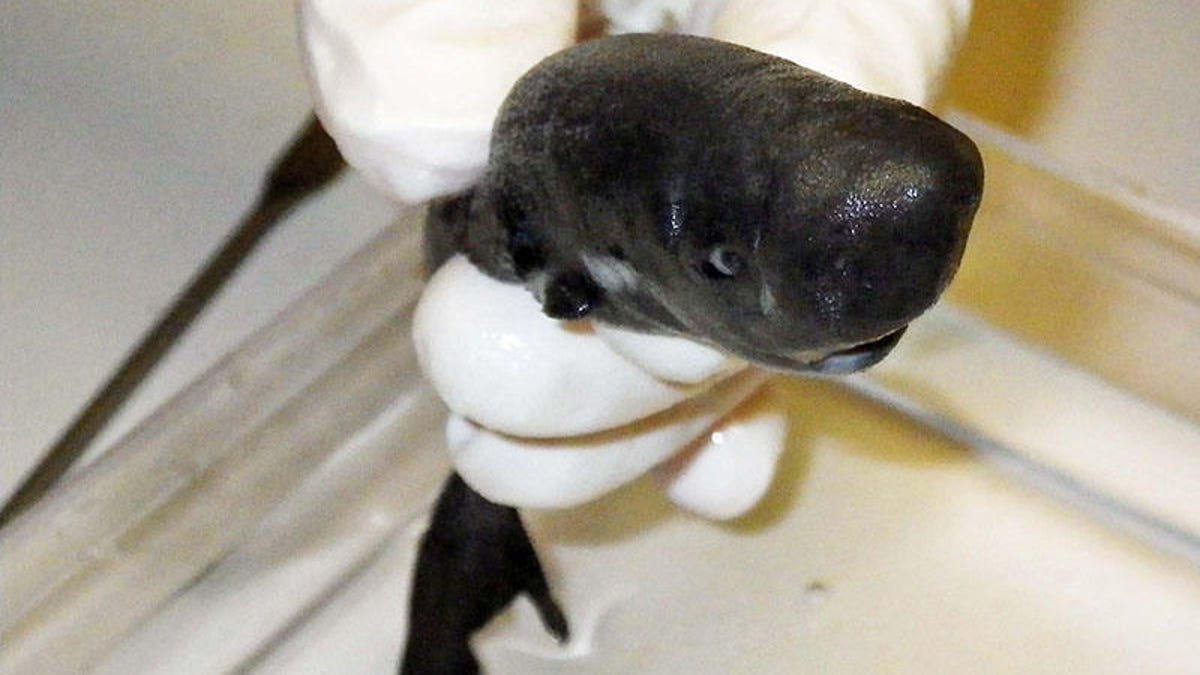Pocket sharks are real, and scientists say this cutie is a new species
Whispers: Pocket shark, doo doo doo doo doo doo.

This American Pocket Shark came from the Gulf of Mexico.
Sharks have a rep as the big, bad monsters of the deep. But they also come in an adorable mini form. Scientists have just welcomed a new species of pocket shark. Say hello to Mollisquama mississippiensis and try not to squee too loudly.
A research team that includes biologists from Tulane University has been studying a 5.5-inch (14-centimeter) male kitefin shark discovered in the Gulf of Mexico in 2010. They named it the American Pocket Shark after determining it's a previously unknown species.
"In the history of fisheries science, only two pocket sharks have ever been captured or reported. Both are separate species, each from separate oceans. Both are exceedingly rare," said Mark Grace, a National Oceanic and Atmospheric Administration fish specialist.
The team described the new pocket shark in an article published last week in the journal Zootaxa.
The American Pocket Shark is different from the only other known species of pocket shark. It has fewer vertebrae, though they both share a curious feature: "two small pockets that produce luminous fluid (one on each side near the gills)." This bioluminescent fluid may be used to help lure prey or avoid predators.
The Gulf of Mexico is still a surprisingly mysterious place. NOAA researchers recently captured video of a rare giant squid in the gulf.
"The fact that only one pocket shark has ever been reported from the Gulf of Mexico, and that it is a new species, underscores how little we know about the Gulf -- especially its deeper waters -- and how many additional new species from these waters await discovery," said Tulane University's Henry Bart.

